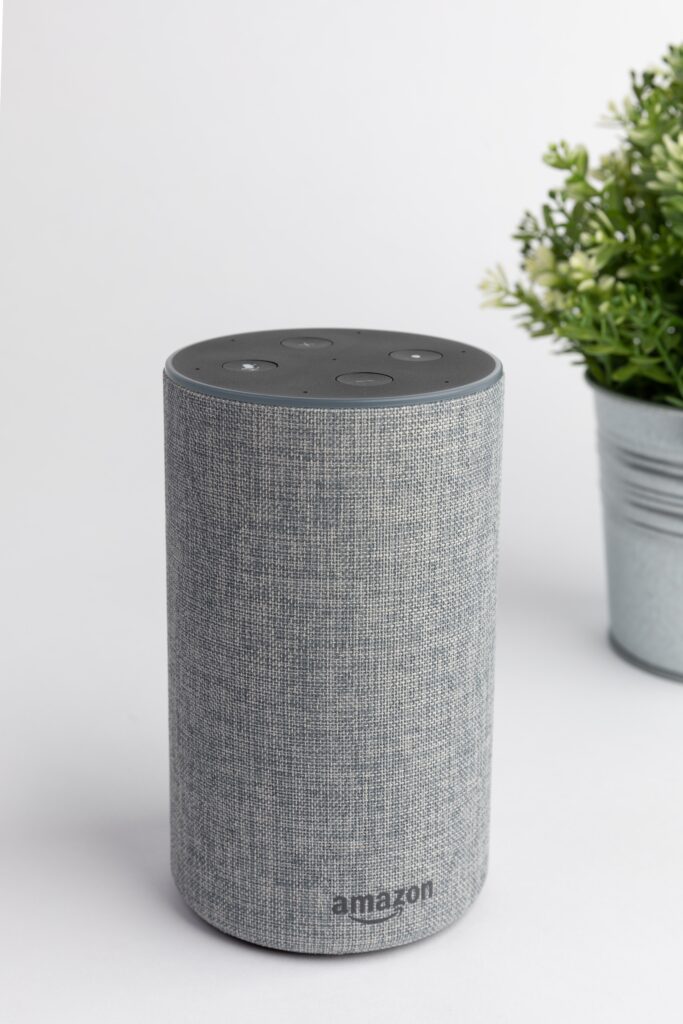Voice Technology
How is the world using voice tech and what can we expect from it already? The following are all my own personal opinions and what I’ve witnessed within the past several years in my own experiences and research.
My name is Jeanna and I’m Head of Audio at Dreamr Productions and Stage Ham Entertainment. I create sound identities for companies, brands, individuals, and events.
In the past, sound was underutilized and pretty much ignored in marketing. However, the tides are turning and it’s becoming more and more prevalent every single day. With the huge focus on Voice Activated Technology, AI, AR, and even the rise of Podcasting, it is clear that if you don’t have a unique voice, you will be lost in the ever increasing noise. But here’s the great news. Because of the never ending always increasing forms of digital media and online advertising, we have more opportunities than ever before to make ourselves heard and be creative in defining a unique sonic identity.
So I’ve been talking a lot about one way to get in on the ground floor of new technology is to find a way to learn, and understand smart speakers. Getting locked in on how to market on voice tech gives brands the potential for increased traffic and notoriety.
According to the latest smart audio report from NPR and Edison Research, smart speakers in the US between 2017 and 2018 increased by 78% from 66.7 million to 118.5 million. Although the article, and actually quite a few of the articles I read, notate that the increase on buying smart speakers has started to decline, the popularity and notoriety of voice compatibility in consumer products is increasing. Originally voice compatible products and services was presented to offer something “different” and “cutting edge” but as voice assistants’ popularity has grown, it’s now something that we just expect to be able to access.
But here’s what caught me most of all.
“Most marketers still haven’t quite figured out how to best utilize Google Home and Alexa as a marketing channel. But those that use cases and promotional opportunities will emerge in time, given how large the installed base of smart speaker owners already is.”
NPR and Edison Research
Want Is High Understanding Is Low
People nabbed up the “latest and greatest hot ticket item”, the smart speaker. They set it up, use it a few times a day for general things like grocery lists and playing their music or podcast of choice, and are slowly accepting its presence in their home. They can do the basics but haven’t delved further than that.
Why?
I foresee 2 major reasons. One, this was a product that simply wasn’t necessary. It didn’t solve a problem persee, it served a comfort. None of us need to be able to speak at a robot to add milk to our grocery list or to call mom right away or change the temperature of our thermostat… stat; we just want to. And the second reason is because we haven’t really been offered more options…yet.
Sure you can play 20 questions (which I’ve done with my 4 year old…super frustrating), learn trivia topics, check the weather and traffic, teach Alexa a “skill” but beyond that is still an ‘in progress’.
The real focus for marketers shouldn’t be in the speakers itself but how to best utilize the tech associated with them for their brands’ gain.
Let The Experimentation Begin
People still see smart speakers as something shiny and new, as do marketers. The head scratching on next steps is still happening. Now’s the time for brands to get in on the ground floor!
The developer of the hardware of the smart speaker created a market for the express purpose of comfort and efficiency. What can we come up with for a purpose to solve a problem by using the technology?
I’m not saying that there is an answer or that there has to be a problem. But from my experience, those products and services that solve a problem, dig in roots better and faster than a product that is a meer luxury.
Take the Alexa Challenge
I had been encouraging people to take the “Alexa Challenge” as I was calling it. I wanted you to buy an Echo Dot for example to do some R&D on it. I chose the Dot because it was, in my opinion, the lowest price point to get in on understanding Alexa technology as well as experimenting on it with how your brand could be a part of that sound universe. What I’ve found so far has been highly intriguing.
First off, I put it in our living room and my family adopted it pretty quickly. Especially my 4 year old daughter. She asks Alexa things like “Alexa, can we have a play-date?” Obviously, Alexa does not understand her yet, but it’s pretty entertaining to listen to her responses. Although she asks silly questions a lot, she also just intuitively picked up on how to ask Alexa things in general. And here’s the cool part. She asked Alexa, “Alexa, play music” and a kid’s music playlist started playing. Alexa knew a child was talking to her.
I’ve also done the customaries. I’ve added to my grocery list and I’ve linked Pandora and Spotify. I also searched out my podcast. That took a little longer because it’s not on Amazon Music (it is now) so I had to do a little extra work on the app on my phone first. I started to create a profile, which I think you can do all from voice activation but I got distracted with day to day things, as do we all. So I’ll have to go back to that later.
I’m also still not sure if by teaching my smart speaker about this Sound In Marketing podcast that it will rank hirer universally or if it’s just limited to my own machine’s understanding (which my guess is the latter).
Another thing that I noticed was that the tech was still largely dependent on the app. So not quite as “hands free” as one would assume. Or at least, as I had assumed.
Now there is a ton that I haven’t delved into yet but I think that that is the number one reason why we need to explore this now. By me not getting to all the features that Alexa has to offer yet, I believe models society today. The common consumer has not yet fully immersed themselves in this new tech.
They plopped something into their lives that wasn’t there before, wasn’t really necessary, and said “OK, do something”. So let’s tell them what they can do with it.
The Developers Win!
The real winners in this, I think, those really smart app developers. I believe that they will clean up on this. But I believe that there is a real chance for marketers to do the same. There is a huge opportunity to be incredibly creative with this. How? I have no idea yet. But I’m super excited to see what people come up with!
Why am I so confident that people will be interested? Amazon posted a video about their “Alexa Pioneers”. It shows the amazing innovation that programmers are creating to serve a vaster audience with their product. They found a gateway and created their own path. I so wish I understood code but I don’t so I’ll just applaud these guys louder.
One of these “pioneers” that Amazon spotlighted is doing exactly what I’m encouraging us to do. Tushar Chugh created a smart cap for the visually impaired. The cap records the images and “narrates the scene to the visually impaired.” He’s solving an actual problem and using the tech to make it happen.
Uncharted Creative Territory
Voice as a person is another reason why I believe that there is no turning back from the direction we are going. Sixieme Son wrote a great article in Martech reporting on the status of voice assistants using the term that I love “Uncharted Creative Territory”. They ask the question, does your brand translate into sound? If not, how can you go about creating that possibility. VUI (Voice User Interface) is only becoming more and more commonplace and if your product can not be voice searched, you’re losing a huge market.
There was a lot of good information in this article but the part that really got to me was their comments on how in one study in England, Alexa was found to be “unsympathetic” and a “know-it-all”.
I don’t know exactly when voice tech started, or when it started becoming noteworthy to us commoners but this makes me laugh.
Who would have thought 10 years ago that technology would not only be given a gender class but also that people would be upset that it wasn’t being more emotionally available for us.
I don’t even think 5 years ago we would have had this experience or conversation. It just goes to show that we are growing by leaps and bounds and that the future is unknown. What will we be disappointed in with Alexa in 5 years from now? That she didn’t provide the right scent in the living room when we entered in the morning? That she cut Tommy’s hair too short? Who knows?
Uniformity in Activation
Another interesting part of the article was that with Alexa, Siri, and Hey Google technology comes the uniformity of activation words and phrases. What Michael from Sixieme Son so brilliantly posed was that with this tech comes huge notoriety for Google, Mac, and Amazon because everyone is familiar with their “voices”.
Other companies lose their notoriety just a little bit because the first thought recognition will go to the Power 3. Their companies’ recognition will come second. Perhaps in the near future there will be more players in the technology? Just look at what happened with Netflix. When once there is one, now there are tons! Just a thought.


